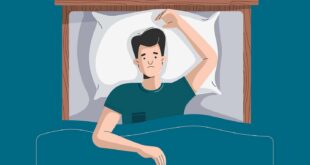Psychological aspects of anxiety. Adrenaline also affects us psychologically by affecting the way we feel and think by producing (usually) a feeling of FEAR. In addition to preparing the body for physical action, adrenaline also psychologically motivates us into doing something about the situation that has caused this immense adrenaline release to occur.
The psychological symptoms can also be described as what you think, feel and say to yourself when you are anxious.
This is a list of common thoughts and feelings felt by people when they are anxious:
• Feeling frightened and panicky,
• Thinking that you might lose control and/or go ‘mad’,
• Thinking that you might die,
• Thinking that you might have a heart attack/ have a brain tumour,
• Thinking that you might be sick/faint/embarrass yourself,
• Feeling that people are looking at you and observing your anxiety,
• Feeling generally as if things are speeding up,
• Feeling detached from your environment and the people in it,
• Feeling like wanting to run away/escape from the situation,
• Feeling on edge,
It can be helpful to try to write down what you feel and think when you next experience an anxiety attack.
Alternatively you might wish to enter this information into your mobile phone so that you can capture the thoughts as they occur. It is likely that you will be experiencing the same thoughts and feelings, or a variation on them, every time you experience panic/anxiety – most people do.
What you will find is that your thoughts are nearly always negative and that you have got into a pattern of thinking whereby you believe that the worst is going to happen. Likewise, you will probably tend to
catastrophise events when you look back on an anxiety attack and get things out of all proportion –
seeing things in black or white not shades of grey.
As well as feeling fearful and panicky, you will probably also be worrying about what is happening to you and may automatically start thinking the worse. These thoughts only serve to worsen the initial anxiety and feed the adrenaline response. It is quite possible to trigger off an anxiety attack simply by thinking about anxiety symptoms.
Many people make the mistake of anticipating what they will feel like in a situation before they even get there. This ‘anticipatory anxiety’, apart from usually being much worse than the event itself, only serves to prime the body to experience ‘panic’. This explains why those of us who are agoraphobic would not be able to go on a day out that was planned some time in advance and yet may be able to go out on the spur of the moment.
Most people with anxiety loathe appointments and hate being forced into a corner.
Advance notice for those with anxiety can equate to weeks of anticipatory anxiety and negative thoughts.
You may find it helpful when thinking back to your last bout of anxiety, what it was that you were
actually scared of. However, this is sometimes easier said than done and you may need help with this –
later in this guide we give ideas about where to get help.
 Therapy for anxiety Therapy for anxiety
Therapy for anxiety Therapy for anxiety



